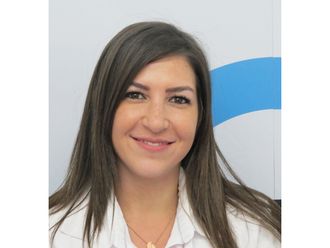
Dubai
Around 3.1 million people in the US alone follow a gluten-free diet, as stated in a report published by Forbes Magazine. However, 72 per cent of them are classified as ‘PWAGs’, which are people without celiac disease avoiding gluten.
Gluten Free UAE, a UAE-based social group, is trying to change people’s perspective about gluten-free diets, proving it is necessary and not just a fad.
The group was created by Linda Forster, a homemaker based in Dubai, after her daughter was diagnosed with celiac disease, an autoimmune disorder affecting the small intestine, in 2011. Before her diagnosis, Forster’s daughter had to be taken to the clinic a few times a week and would undergo intravenous therapy.
Forster told Gulf News: “My daughter would not be alive today had she continued to eat gluten. People with celiac disease have no choice. They have to eat gluten-free in order to be healthy.”
Some patients can just be gluten intolerant, meaning they do not suffer from an autoimmune disorder, but are just allergic. However, the symptoms can be similar.
Forster said: “When my daughter was diagnosed, there were no support groups in the UAE. My entire life had turned upside down, and I didn’t have anyone to ask questions or just chat to for support. That’s when Gluten Free UAE was born. My whole family is now gluten-free, as my son and I got our diagnosis about two years ago.”
People may give up gluten without a proper diagnosis, with the intention to join a trendy movement. However, research conducted by the US-based Mayo Clinic shows that even those suffering from non-celiac gluten sensitivity issues have reported improvement in their symptoms after eliminating gluten from their diet.
Though the number of people suffering from celiac in the UAE is not known, Forster’s Facebook page alone has around 8,000 followers. People interact with each other on a daily basis, exchanging recipes, sharing tips and reviews of restaurants offering gluten-free menus.
Forster said: “The page has helped all of us immensely. We approached stores asking for gluten-free options. We tirelessly wrote letters to companies and Press.”
Kim Ames, a British national based in Dubai, was diagnosed with celiac disease in 2011 and eliminating gluten from her diet has improved her health and well-being.
She said: “I have had people tell me it’s a fad. People in restaurants have rolled their eyes and said rude things when I asked about a gluten-free menu. There needs to be a lot more education.”
Before moving to the UAE, she did a lot of research on gluten-free options in the country. That’s when she came across the social group.
She said: “I check it many times a day. The page has helped me find bakeries, restaurants and doctors and allowed me to meet others that are like me.”
Reem Al Ali, an Emirati graphic designer based in Abu Dhabi, suffered from abdominal pain for years and had to visit the hospital often. All of these issues were solved by a diet.
She said: “There’s a lot of misconception about gluten and I understand the confusion, especially with the media and a lot of celebrities publicly adopting a gluten-free lifestyle to either lose weight or for better skin.”
After her diagnosis, she had a lot of questions. So, she went online and started doing research. That’s when she came across Gluten Free UAE.
She said: “I check the Facebook group if I want to know about new restaurants with gluten-free menus or a new product added on a grocery shelve. I was upset, confused and a bit angry after the diagnosis. But, the group explained to me how being diagnosed was a good thing.”
Aisha Bin Brook, an Emirati entrepreneur based in Al Ain, had been suffering from digestive issues since childhood. She met with several doctors, but no one could properly diagnose the issue. In 2013, she met with a herbalist in London, who suggested a gluten-free diet.
Bin Brook said: “Since then, my life changed for the better. After doing some tests, I was diagnosed with gluten intolerance.”
After further tests, she was diagnosed with irritable bowel syndrome (IBS), too. She is currently trying to adapt to a low FODMAP diet, which are short chain carbohydrates that are poorly absorbed in the small intestine.
She said: “I felt a huge difference from the first meal. We eat a lot of wheat on a daily basis and that caused digestive problems.”
After joining the Gluten Free UAE group, she could exchange product and restaurant feedback and get help with recipes and recommendations. She also started a monthly subscription service to provide healthy meals to those with gluten intolerance.
Nancy Karimi, an African branding consultant based in Dubai, received her diagnosis of celiac disease around seven years ago. After adopting a gluten-free diet, she witnessed clearer skin and healthier hair and nails.
She said: “I had been to several doctors and each one prescribed iron and B12 tablets. Even 100 per cent organic grains give me the same symptoms, such as foggy brain, eczema, horrible mood swings and tummy cramps. I finally found a curious alternative health doctor who asked all the right questions and then focused on my gut.”
Barley and other grains consisting of gluten were not commonly consumed in her household. But, after her health issues, she would do a lot of research on her illness and stumbled upon Gluten Free UAE.
Sabina Goranova, a British teaching assistant in Dubai, has been suffering from mild stomach discomfort since her early 20s. In the UK, doctors diagnosed her with IBS and she was told to “deal with it”.
She said: “After coming to Dubai, I booked a consultation. The doctor quickly saw that I had bad lymph node inflammation in the intestine. I have been adapting to a complete change of lifestyle for the sake of my health and turning completely gluten-free.”
A few weeks after her change in diet, scans showed that the inflammation had disappeared. She no longer felt discomfort after eating.
She said: “The lack of knowledge in the UAE about gluten is evident and the gluten-free alternatives are expensive. But, it’s slowly catching up.”
Anna Dalledonne, an Italian coordinator based in Dubai, experienced years of digestive issues before being diagnosed with celiac disease. Going gluten-free worked for her as the digestive problems disappeared and so did the recurrent headaches.
She said: “Unfortunately, there is a lot of misinformation among customers and restaurants operators in the UAE. Many think that celiac disease is an allergy, which it is not. I once had a restaurant manager telling me, ‘Surely you can have some gluten, it is not going to cause an anaphylactic reaction and you wouldn’t die’.”
As a regular contributor to Gluen Free UAE, Dalledonne says she has learnt to manage her lifestyle and diet.
She said: “It was daunting at first and I felt that it would be impossible to live with it. Finding Gluten free UAE made me realise that I am not alone.”








